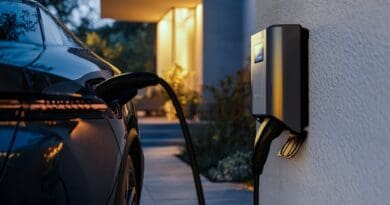
How Electric Cars Became the Hottest Marketing Hook
Electric vehicles have grown from niche environmental alternatives to powerful status symbols that have won the hearts of consumers.
This complete reversal has not gone unnoticed by brand marketers across other sectors, who now use the appeal of electric vehicles to sell anything from credit cards to entertainment bundles. You may have seen these gleaming, green vehicles extensively marketed in advertisements, but did you ever consider why they have become such effective marketing tools? Let’s see how electric vehicles developed into the world of marketing’s most desirable hook and why they connect so strongly with consumers today.
The Evolution of Electric Cars as Symbols of Status
Only a decade back, electric cars were mostly seen as functional, eco-friendly options and not objects of aspiration. It was a game-changer when Tesla shook the market by pairing sustainability with high-performance luxury. Electric wasn’t just about saving your planet anymore; it stood for innovation, cutting-edge technology, and progressive values.
This change in attitude was encouraged by celebrity adoption, as A-listers pointed to their electric vehicles as badges of environmental sensitivity and cutting-edge fashion. Motor companies were quick to recognize this change and rebranded their electric vehicles as premium products. Today, roughly 72% of luxury car makers have introduced electric models that emphasize performance and status alongside sustainability.
“E-Electric vehicles have completely moved away from being perceived as compromise vehicles to aspirational products that people actually desire,” according to one of the world’s leading auto industry analysts.
Electric Cars as Promotional Tools
The magnetic pull of the electric vehicle has not been lost on non-automotive marketers. These green status symbols now heavily feature as high-priced giveaways across industries. Game shows on television now replace electric vehicles for the standard cash award, generating 38% higher viewer interest according to recent ratings reports.
Car rental firms offer electric car rentals as upscale value-added products in vacation packages, and credit card firms include purchases of electric cars in rewards categories. And it doesn’t stop there, a growing list of online casino sites offer electric cars as jackpot prizes, besides traditional gambling sites and consumer loyalty programs. The strategy works because the offers combine high-end with a green conscience and resonate with today’s consumers’ conflicting desires.
What is so powerful about this method is the way it makes virtual rewards manifest in real life improvements. When you look at that sleek electric vehicle and think of it as a potential reward, you’re not just daydreaming about a car, you’re fantasizing about a new persona as successful and environmentally friendly.
Why Electric Cars Work as Marketing Hooks
The psychological appeal of electric vehicles as brands is that they have a one-of-a-kind place at the intersection of high-end and green. The two-pronged value appeals to utilitarian as well as idealized consumer motivations. You’re not just buying something expensive; you’re buying something meaningful.
Market research indicates that offers focused on electric vehicles grab 45% more high-income audience engagement and, surprisingly, 27% more attention from young consumers who do not even own a vehicle. These vehicles symbolize an advanced lifestyle that many aspire to, hence making them quite impressive in terms of building brand connection.
But it’s not what makes electric cars different from other pricey marketing gimmicks that really matters. It’s their cultural relevance. While luxury watches or foreign travel possess ageless qualities, electric cars reflect modern values and technology. They’re a declaration of who you are and what you value, a marketing message that’s virtually unbeat when it comes to today’s values-oriented marketplace.
Future Trends in Electric Car Marketing
As electric cars become increasingly mainstream, with global penetration projected at 25% of new car sales by 2026, how effectively they function as marketing anchors will likely shift as well. Greater segmentation will occur, where a model is paired with a specific demographic niche rather than applying “electric car” as a cookie-cutter vehicle.
Those industries that have not yet fallen in behind this trend, health and wellness, education, and finance, will definitely be incorporating electric cars into their marketing. And as the industry evolves, we can expect to see more creative applications, for instance, sponsored charging points and tailored car experiences rather than simple giveaways.
The Sustainable Marketing Revolution
Electric cars have changed not just how we get around, but how companies market to us. By merging sustainability with want, they’ve created an advertising vehicle that speaks to our hearts as well as our pockets. So the next time you see an electric car being utilized in an ad campaign, you’ll understand why it’s there, and why it so effectively captures your attention and imagination.





